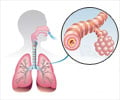Levofloxacin Medication Information
Learn everything you need to know about Levofloxacin-pronunciation, uses, dosage guidelines, indications, and when to take or avoid it.
Get up-to-date information on side effects, precautions, warnings, and proper storage to ensure safe usage.
Explore Levofloxacin brand names commonly used in India and internationally, along with detailed pricing information. Consult your healthcare provider for tailored medical advice.
Generic Name : Levofloxacin Pronunciation : LEE-voe-FLOX-a-sin ICD Code : Y41.8 Therapeutic Classification : AntibioticsBrand Names or Trade Names of Levofloxacin
India :
International :
Levaquin.
Why is Levofloxacin Prescribed? (Indications)
This medication is prescribed for treating certain bacterial infections, and preventing anthrax. It is a quinolone antibiotic. It kills sensitive bacteria.When should Levofloxacin not be taken? (Contraindications)
Contraindicated in people with known hypersensitivity, children younger than 18 years.What is the dosage of Levofloxacin?
Dosage varies from 250 to 750 mg daily for 7 to 14 days. It may be administered for 3 days for urinary tract infection and 28 days for prolonged infection of the prostate.How should Levofloxacin be taken?
It comes as a tablet and a solution (liquid) to take by mouth (orally). It is usually taken once a day with or without food. (Ensure adequate fluid intake.) Oral solution: Should be taken on an empty stomach also given as an injection at your doctor's office, hospital, or clinic.What are the warnings and precautions for Levofloxacin?
•Two hours time interval should be there in between antacids, didanosine and to this medication.• It may cause dizziness, tiredness. Do not drive a car, operate machinery while taking this medication.
• It may make your skin sensitive to sunlight.
Caution should be exercised in patients with history of prolonged QT interval, irregular heartbeat, nerve problems, low level of potassium in your blood, slow heartbeat, thickening and hardening of the walls of the arteries in the brain, seizures, chest pain or liver disease.
• ♦ Pediatric patients may develop with increased risk of musculoskeletal disorders; consult with your healthcare provider about this.
What are the side effects of Levofloxacin?
Gastrointestinal- Nausea, vomiting, diarrhoea, constipation and inflammation of the throat.Central Nervous System- Headache, sleeplessness, seizures, dizziness, confusion, hearing voices that do not exist and depression.
Eye and ENT- Transient decrease in vision, ocular burning, ocular pain or discomfort and foreign body sensation.
Miscellaneous- Injection site reactions, fever, excessive sensitivity to light and chest pain.



















